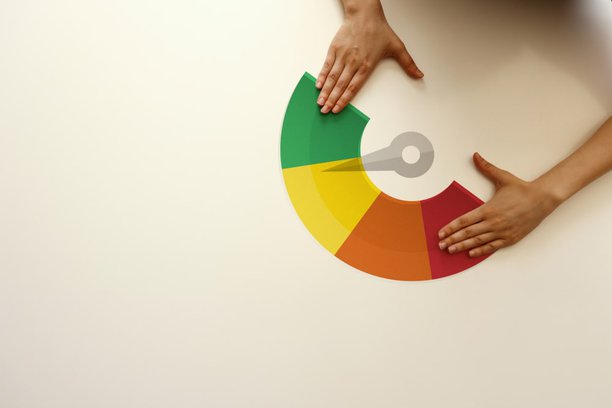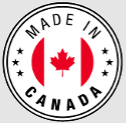How to Check Your Credit Score for Free in Canada

Keeping an eye on your credit score is crucial for managing your financial health, negotiating better interest rates, and ensuring the accuracy of your credit information.
In Canada, you can obtain your credit score for free from various sources. This guide provides detailed information on how to check your credit score without any cost, including through credit bureaus and online banking services.
Why Your Credit Score Matters
Your credit score is a numerical representation of your creditworthiness, ranging from 300 to 900. A higher score indicates a better credit profile, which can lead to more favourable loan terms, higher credit limits, and better interest rates.
Being aware of your credit score allows you to:
- Negotiate Better Rates: Knowing your credit score before applying for a loan can help you negotiate lower interest rates.
- Optimize Your Score: Regularly checking your credit report helps you understand the factors affecting your score and take steps to improve it.
- Identify Incorrect Information: Reviewing your credit report helps you spot and correct errors that could negatively impact your score.
- Track Fraud or Identity Theft: Monitoring your credit report can help you detect unauthorized activities early.
Major Credit Bureaus in Canada
In Canada, two primary credit bureaus compile and maintain credit reports:
- Equifax: One of the largest credit reporting agencies, offering both credit scores and detailed credit reports.
- TransUnion: Another major credit bureau that provides credit scores and comprehensive credit reports.
How to Get Your Credit Score for Free
Directly from Credit Bureaus
Both Equifax and TransUnion provide options to access your credit report and score for free. By law, you can request a free copy of your credit report once a year from each bureau.
Equifax
To get your free Equifax credit report:
- Online: Visit Equifax and follow the instructions for requesting a free credit report.
- By Mail: Fill out a request form and mail it to Equifax.
- By Phone: Call their customer service to request your report.
TransUnion
To get your free TransUnion credit report:
- Online: Go to TransUnion and follow the steps for obtaining your report.
- By Mail: Complete the required form and send it to TransUnion.
- By Phone: Contact TransUnion's customer service for assistance.
Online Services
Several online platforms offer free access to your credit score and report by partnering with the major credit bureaus.
Credit Karma
Credit Karma provides free access to your credit scores and reports from TransUnion. To use Credit Karma:
- Visit Credit Karma.
- Sign up for a free account by providing some basic information.
- Answer a few verification questions to access your credit report and score.
Online Banking
Many Canadian banks offer free credit score access as part of their online banking services. Here’s how you can check your credit score through some of the major banks:
RBC (Royal Bank of Canada)
RBC provides free access to your TransUnion credit score through its online banking portal:
- Log in to your RBC online banking account.
- Navigate to the "Account Management" section.
- Select "View Your Credit Score" to access your TransUnion credit score.
BMO (Bank of Montreal)
BMO customers can access their credit score for free via online banking:
- Sign into the BMO Mobile Banking App or BMO Online Banking.
- Open the Bank Services icon.
- Under the general section, select My Credit Score.
- Once you agree to the Terms and Conditions, scroll down to find the Score Simulator.
Scotiabank
Scotiabank offers free credit score access through its online banking and mobile app:
- Log in to Scotiabank online banking or the mobile app.
- Go to the "My Updates" section.
- Select "TransUnion Credit Score" to check your credit score.
CIBC (Canadian Imperial Bank of Commerce)
CIBC provides free access to your credit score through its online banking services:
Sign on to CIBC Online Banking® or CIBC Mobile Banking® App and follow the instructions below.
- Select “Check Credit Score” under More on the menu
- Agree to the terms to access the dashboard
Other Online Platforms
Apart from the major banks and Credit Karma, other online platforms also offer free credit score access, including Borrowell and Mogo.
Borrowell
Borrowell provides free access to your Equifax credit score and report:
- Sign up at Borrowell.
- Complete the registration process and answer verification questions to view your credit score and report.
How to Maintain a Good Credit Score
Maintaining a good credit score involves several key practices:
- Pay Bills on Time: Late payments negatively impact your credit score.
- Keep Credit Utilization Low: Aim to use less than 30% of your available credit.
- Avoid Unnecessary Credit Inquiries: Too many credit inquiries can lower your score.
- Diversify Your Credit Mix: Having a mix of credit types (e.g., credit cards, loans) can improve your score.
- Monitor Your Credit Report Regularly: Regularly check your credit report for errors or fraudulent activities.
At the end of the day, checking your credit score for free in Canada is easier than ever, with multiple options available through credit bureaus, online services, and even your bank. By staying informed about your credit score and taking steps to maintain a good credit profile, you can ensure better financial health and access to favourable credit terms.
Regular monitoring helps you detect errors or fraudulent activities early, giving you peace of mind and control over your financial future. If you're looking for flexible and accessible loan options, visit us at Magical Credit today to explore how we can help you achieve your financial goals.





